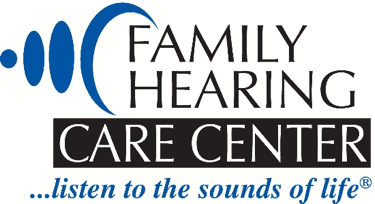
Love Your Ears This Valentine’s Season
Ears do so much daily, helping connect with loved ones and experience the world. Taking care of them is an act of love that pays off in both the short and long term. The following guide highlights key ways to support ear health, maintain excellent hearing, and prevent common problems like hearing loss that can arise when ear care is overlooked.
Gentle Cleaning Practices
Although the ears are self-cleaning, they require occasional care to keep them in optimal condition. Cleaning should be done with caution to avoid damaging the delicate structures of the ear canal. Instead of cotton swabs, which can push wax deeper, opt for a soft cloth to gently clean the outer ear.
For buildup that seems persistent, it’s best to consult a hearing health professional. Ignoring excessive wax can lead to blockages, discomfort, or hearing loss, but attempting removal without proper tools could cause more harm than good.
Managing Noise Exposure
Modern life often exposes ears to high noise levels, whether from concerts, headphones, or bustling environments. Consequently, loud sounds can harm the sensitive hair cells in the inner ear, leading to noise-induced hearing loss.
Wearing earplugs at loud events or choosing noise-canceling headphones can significantly reduce the risk of damage. It is important to maintain a safe volume level when using headphones, especially during prolonged listening sessions.
Monitoring Changes in Hearing
Changes in hearing, such as difficulty understanding conversations or noticing muffled sounds, should not be ignored. These symptoms could indicate early stages of hearing loss. Recognizing these signs early makes a significant difference, as timely intervention often prevents further deterioration.
One proactive step for monitoring ear health is scheduling a hearing health exam. Regular checkups enlighten the hearing health professional about your ear condition, especially for those frequently exposed to loud environments or with a family history of hearing issues.
Be Mindful of Ear Infections
Ear infections can occur at any age and are often painful and disruptive. Swimmers and those exposed to humid conditions are particularly susceptible. Keeping ears dry and clean after exposure to water helps reduce this risk.
If discomfort, redness, or drainage occurs, seeking medical attention promptly can prevent infections from worsening or leading to long-term complications.
Protecting Ears in Cold Weather
Cold temperatures can affect ears unexpectedly, including discomfort or increasing the risk of infections. Wearing earmuffs, hats, or other protective gear in chilly conditions keeps ears warm and shields them from harsh weather.
Cold air can also lead to dryness, which makes the skin around the ears more prone to irritation. Regular moisturizing can help maintain healthy skin, even during the colder months.
The Role of Nutrition in Ear Health
A balanced diet plays an important role in overall health, including the well-being of the ears. Certain nutrients, such as vitamins A, C, and E, along with minerals like zinc and magnesium, support inner ear function and may help protect against age-related hearing loss.
Incorporating fresh fruits, vegetables, nuts, and whole grains into meals ensures the body has the necessary building blocks to maintain ear health. Hydration is equally important, as it supports proper circulation and keeps the ears functioning optimally.
Emphasizing the Importance of Regular Exams
Scheduling a hearing health exam is one of the most effective ways to stay ahead of potential problems. These exams detect early signs of hearing loss and provide a chance to discuss preventive measures with a hearing health professional.
Hearing evaluations are especially important for those over 50, as age-related changes in hearing can be subtle but progressive. Regular testing offers peace of mind and ensures any necessary interventions can be implemented quickly.
